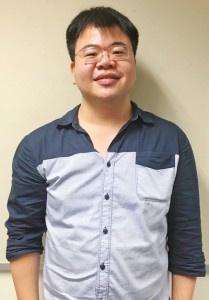Young Children’s Voices in Mathematical Problem Solving
Contributed by Dr Ho Siew Yin and Sng Wei Qin Abbie, from NTUC First Campus, for SingTeach Virtual […]
Read More
Contributed by Ong Wee Yong, NUS High School of Mathematics and Science.
International students are often assumed to be able to assimilate seamlessly into our local student population. But do they really? A Science teacher seeks to find out more about the assumptions made about international students and what can be done to help them overcome the challenges they face.
 The cultural diversity of Singapore schools has increased over the past few years, with the number of international students studying in Singapore increasing. However, these international students have generally been treated homogeneously and assumed to be able to assimilate seamlessly into the local student population.
The cultural diversity of Singapore schools has increased over the past few years, with the number of international students studying in Singapore increasing. However, these international students have generally been treated homogeneously and assumed to be able to assimilate seamlessly into the local student population.
Aikenhead (1996, 2001) described how the school culture and science culture that these international students have grown up in back in their home countries could very well be vastly different from what they experience in their country of study, especially if their home country does not teach modern Western science.
However, no studies of a similar nature have been conducted in Singapore. Therefore, I wonder if the Science education system here adequately addresses the needs of these international students in Singapore.
Having taught in a local school for about 2 years, one of the biggest problems that I have observed international students facing is the English language barrier.
As English is the lingua franca and the official mode of classroom instruction in Singapore, many international students who come from countries where English is not a commonly spoken and written language generally struggle hard with learning and understanding the terms used in the classroom.
The second challenge that most international students face is that teachers do not take into consideration the language and cultural experiences of students and assume that all students are homogeneous. The Science curriculum in Singapore is very much centred around modern Western science, which may conflict with the home or school curricula of international students.
As a result, international students need to gain proficiency in the literacy required to learn modern Western science in Singapore. In this context, the literacy required refers to the language required for social discourse, academic discourse and cultural understanding (Lee & Fradd, 1998). As such, having to gain proficiency in both science and literacy simultaneously poses a significant challenge to these international students.
A third challenge that international students face is assimilating into the local school culture. International students often come to Singapore alone, with a few other students from the same country or, if they are fortunate, with a few other students from their school. Their social circle is virtually non-existent when they first set foot in Singapore.
Building up their social circle is an important task for many of them as it is very challenging for any student, not just the international ones, to have to learn in an environment where he or she is not readily socially accepted. Therefore, these international students may face additional challenges in their learning as they also work towards building their social circle.
This is a salient point to note as learning becomes very restricted if a student’s social circle is not well established. This affects a student’s ability to do group work and seek peer help when struggling with a particular concept.
In order to view this issue and its associated problems, I adopt a feminist lens to examine the above issues. A feminist lens is a critical and inclusive lens that allows me to critically examine this issue from all perspectives, including and especially from the perspective of the international students, which is often overlooked or ignored.
There are multiple assumptions made about these international students, which are often taken for granted and, as a result, left unexamined. This got me interested in wanting to find out more about these assumptions and to determine whether they are valid.
Behind these assumptions lie the voices of these potentially marginalized international students whose needs may well have been neglected. By adopting a feminist lens in my study, I provide a platform for these international students to make the challenges they face more visible.
I am using case study as the main methodology in this research study because it lets a researcher find out very detailed and personal experiences of an individual. This would provide in-depth information on the different challenges and experiences various international students’ experience and yield insights on ways to help these students overcome these challenges by making appropriate changes.
Hopefully, the data and analysis from my research will contribute to existing information about international students that can eventually serve as the springboard for changes to help these students.
I’m carrying out this research study as part of the Master of Arts (Education) programme offered by NIE. It is currently still at the fledgling stage, as collecting of data has just started.
I am currently conducting individual interviews with students, as well as doing video-recording of their lessons. I plan to conduct focus group discussions with them at a later part of my study.
At the end of the study, in addition to completing my thesis, I hope to publish the findings in an education journal so as to raise awareness of this issue among educators and policymakers.
References
Aikenhead, G. S. (1996). Science education: Border crossing into the subculture of science. Studies in Science Education, 27(1), 1–52.
Aikenhead, G. S. (2001). Students’ ease in crossing cultural borders into school science. Science Education, 85(2), 180–188.
Lee, O., & Fradd, S. H. (1998). Science for all, including students from non-English-language backgrounds. Educational Researcher, 27(4), 12–21.